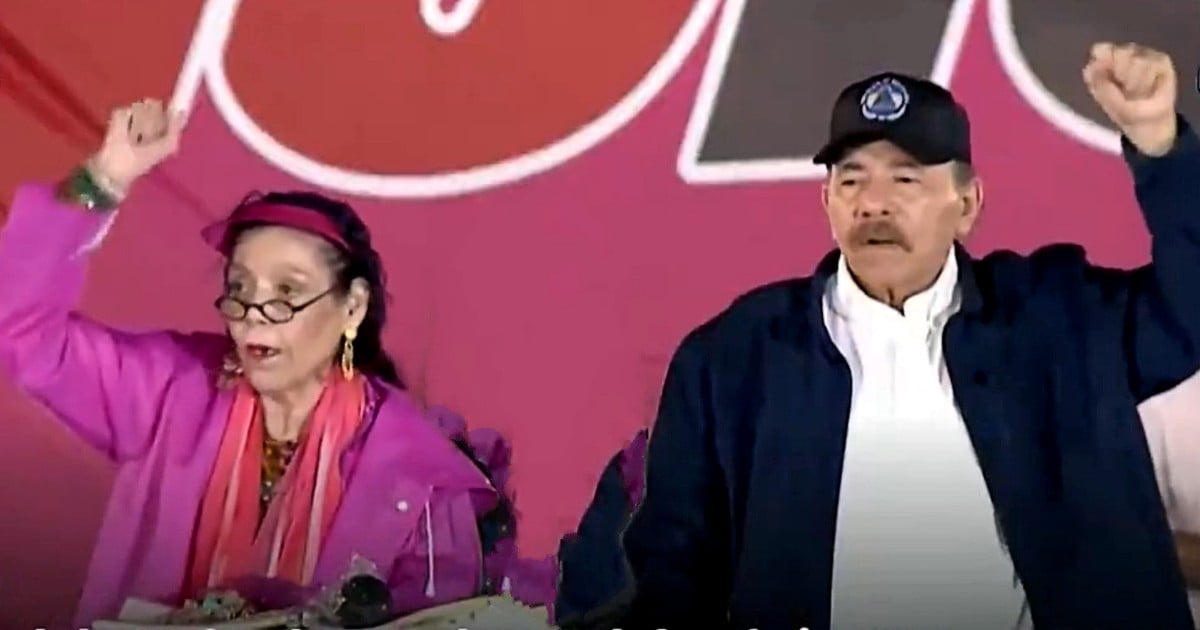
Nicaraguan leader Daniel Ortega intends to promote a constitutional reform that will consolidate absolute power for his family in the country. The initiative proposes the creation of the roles of "co-president" and "co-presidentess," designating his wife and current vice president, Rosario Murillo, to a shared role at the head of the state.
With this reform, Ortega and Murillo would not only strengthen their control over the Executive branch, but they would also officially coordinate the Legislative, Judicial, and Electoral powers, eliminating any independence among them.
The project, which amends more than 100 articles of the Constitution, also extends the presidential term from five to six years and establishes that the co-presidents, elected by universal suffrage, will have immunity during their term.
According to the BBC, the text also legalizes the establishment of so-called "volunteer police," paramilitary groups accused of human rights violations during the anti-government protests of 2018.
In addition, the reform introduces new restrictions on freedom of expression, limiting it to instances where it "does not violate the principles of security, peace, and well-being" as defined by the Constitution. It even formalizes the flag of the Sandinista National Liberation Front (FSLN) as a national symbol, placing it on the same level as the national emblems.
With a National Assembly dominated by the ruling party, the approval of the reform is imminent. The President of the Chamber, Gustavo Porras, confirmed that it will be processed urgently and could be approved in the coming days.
The response from the opposition and the international community
The opposition, mostly in exile following government repression, strongly condemned the reform.
Félix Maradiaga, a prominent figure in the opposition, described the measure as "the formalization on paper of the bicentennial dictatorship that already exists in Nicaragua." Meanwhile, Juan Sebastián Chamorro noted that the reform eliminates any separation of powers and consolidates an authoritarian regime led by Ortega and Murillo.
The Organization of American States (OAS) also rejected the initiative, deeming it an "aberration that institutionalizes a marriage dictatorship." In a statement, the OAS urged the Nicaraguan government to restore democracy and hold free and legitimate elections.
An unprecedented political tandem
The figure of Rosario Murillo, known for her eccentric style and inclination towards esotericism, has gained prominence in government decisions since she took office as vice president in 2017.
According to analysts, Murillo is effectively acting as co-president, making strategic and executive decisions within the government.
With this reform, their role would be formalized, establishing a joint leadership that some critics have compared to a "king and queen" model, which undermines republican principles, according to El País.
The constitutional reform marks a point of no return in the concentration of power in Nicaragua. By removing the barriers between the branches of government, Ortega and Murillo reinforce their control over all institutions, ensuring their stay in power and undermining any form of internal opposition.
Meanwhile, with the exception of Cuba, Venezuela, and other allies like Russia and Iran, the international community continues to denounce the democratic backsliding in Nicaragua, where repression, the forced exile of opponents, and censorship of independent media have become the norm.
The reform not only reaffirms this authoritarianism but also aims to legitimize it at the constitutional level, deepening the political, social, and economic crisis that the country is facing.
The future of the Nicaraguan regime, under the command of Ortega and Murillo, seems to be defined by a single-party system and the systematic repression of any dissent, consolidating a family dynasty that threatens to perpetuate itself in power.
Filed under: